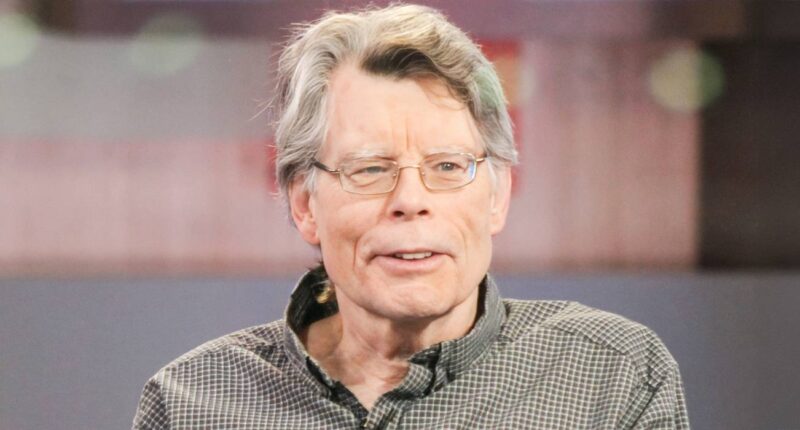There have been few storytellers in our time as gifted as Stephen King. He’s had so many of his novels, novellas, and short stories adapted into film, and most audiences like at least one of his stories, even if they don’t know it’s his. More than being great at telling them, though, King also enjoys watching great stories on the big screen and is a huge film buff. What may surprise you, however, is that, back in the 2000s, he claimed to actively dislike one of another gifted storyteller’s greatest works: Quentin Tarantino‘s Kill Bill.
In an op-ed for EW, King discussed his feelings regarding the film industry at the time and revealed his approach to watching movies in general. He singled out a few classics and popular flicks to illustrate his points, and chose Kill Bill as a problematic example, a movie that objectively “doesn’t matter.” In his typical sharp-tongued manner, King dismissed the movie for being “narcissistic,” “tepid,” and “pretty blah,” and, although we don’t necessarily agree with some of his points, his overall industry analysis is actually spot on.
Stephen King Described Quentin Tarantino’s ‘Kill Bill’ as a “Blah Movie”
In his argument, King divides movies into two categories: those that matter and those that don’t. He praises Mystic River as an example of the former category, a movie that “will burn itself into your memory,” while Kill Bill exemplifies the latter. He clarifies that he doesn’t think of it as “a benchmark of awfulness” and recognizes that there are good things about it, especially Uma Thurman‘s performance as the Bride, but that the movie lacks depth and is “just dully full of itself,” feeling more like “Quentin Tarantino’s bonfire of vanities” than entertainment.
King criticizes Tarantino’s typical over-the-top humor (“the movie’s litany of in-jokes is so tiresome”), but focuses especially on the use of violence in Kill Bill, which he hilariously describes as “choreographed like an Esther Williams swim routine.” “When the Bride dispatches at least 70 kung-fu goons in one scene, blood spurts from amputated limbs, often in pretty spirals,” he says, and goes on to criticize the movie’s lack of a proper ending, which is only a promise of “more karate kicks and throws, more falsetto birdy-sounding battle cries.”
Overall, King states that Kill Bill is “certainly well-made, and the story garners some of our interest as it goes along,” but that, ultimately, “dull is still dull, isn’t it?” His whole point is that, compared to a movie that matters like Mystic River, Kill Bill ends up being utterly forgettable and disposable, something that is so based on Tarantino’s ego that, “Ten years from now, you’ll be hard put to remember what it was about or who was in it.” Stephen King’s words. The thing is, he’s right about his reading of the industry and even Kill Bill, to a point.
King Has a Point About ‘Kill Bill’, but This Isn’t Necessarily Bad
Funnily enough, Quentin Tarantino has recently claimed that he thinks “Kill Bill is the ultimate Quentin movie,” a project he “was born to make.” He believes that Inglourious Basterds is his best movie, and that Once Upon a Time… in Hollywood is his favorite, but that Kill Bill is something “nobody else could’ve made.” It’s interesting, then, to put Tarantino’s remarks against Stephen King’s comments, not to compare them and determine who is right, but because they are actually complementary.
Indeed, Kill Bill is a movie that only Tarantino could’ve done. It’s a gory and violent tale of revenge that feels meticulously designed to be a hit with every audience, from Elle Driver’s (Daryl Hannah) whistle song to the Bride’s yellow attire, straight-up stealing from Bruce Lee. Get her a katana, and you get an icon. And, despite its theme of revenge, the story itself isn’t relatable at all, because most of us will never have to fight “70 kung-fu goons,” thankfully. The murders in Mystic River are closer to the reality of anyone in the audience, granted.
But, still, Kill Bill is one hell of a fun watch precisely because of Tarantino’s ego. It’s a movie that he wrote for himself most of all, drawing from nearly all of his most obvious inspirations, from Asian action movies to Spaghetti Westerns, and he even admitted it, claiming that every aspect of it was ripped from his “imagination and my id and my loves and my passion and my obsession.” This resonates with King’s vision in a weird way, because everything he says about Kill Bill is spot-on, but that’s precisely what makes it fun. It’s as self-referential as it gets, but this isn’t necessarily bad.
King’s Vision Puts the Industry in an Interesting Perspective, Especially Nowadays
Stephen King is absolutely right when he says Mystic River is a movie that matters, and Kill Bill doesn’t, because of the emotions that they evoke and what they discuss. But that has never defined success or legacy, and despite mattering or not, both are valid. Most of us go to the theater to feel things, yes, but also to escape reality, sometimes. In that sense, watching an egotistical filmmaker making a movie for himself is also good. If it’s well-made, the fun the filmmaker had in the process transpires all through it, as it does in Kill Bill.
The problem is that the current industry dials everything to 11, so eccentric and self-referential filmmakers like Tarantino or Christopher Nolan get way more space and money for their films. The Odyssey sold out whole theaters one year before its release, for example. So, when King says that “movies that matter call out to us in their own voices,” he’s right again, but Kill Bill does have a voice, too. It’s screaming at your face, but it’s there. With the current state of the industry, however, it would be interesting to hear what movie King would compare The Odyssey to when it comes out.
Kill Bill is available to watch on Prime Video.










